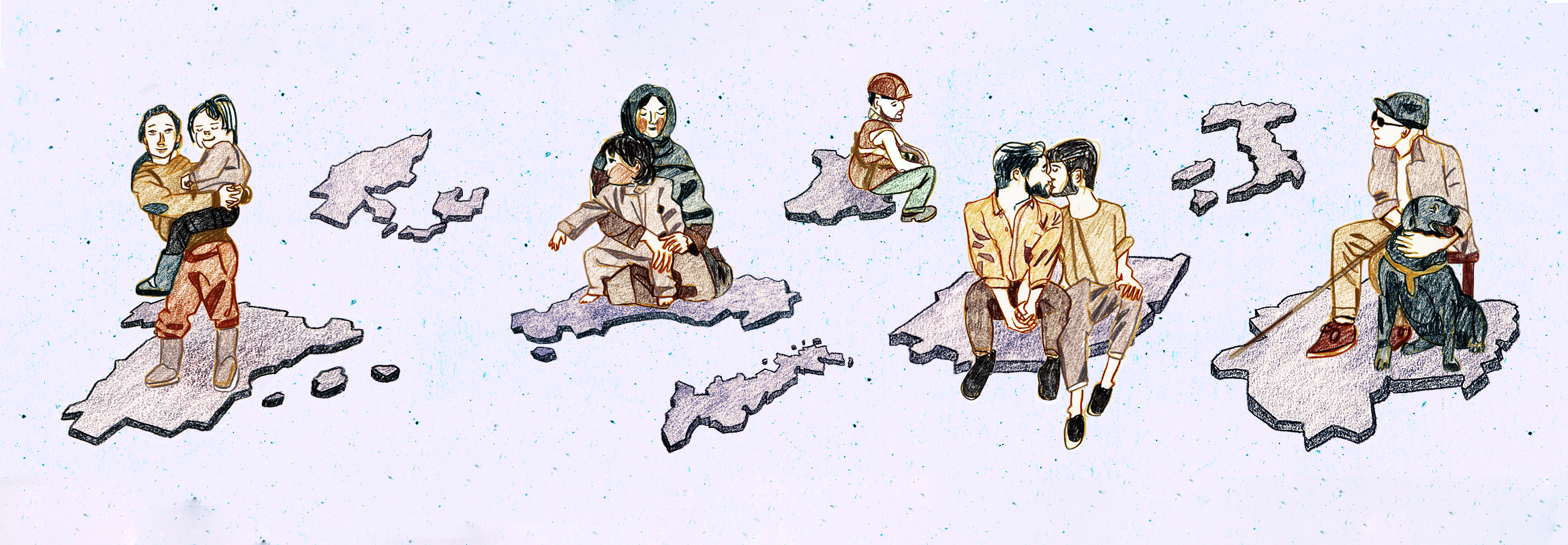An encompassing and embracing experience of belonging may be one of the few utopian ideals that can — and, indeed, does — exist in the world. It is a feeling of intentional togetherness that anyone, anywhere can experience mentally, physically, and spiritually—its absence can also be felt acutely. Many are explicitly made to feel that they do not belong. Still, the possibility to feel belonging exists for everyone. Belonging is a multi-faceted and beautiful experience, differentiated from diversity or inclusion in that it is something we can all contribute to–a collaborative effort requiring a whole society approach. By definition, belonging includes the agency to contribute to the evolution or definition of that to which we belong or seek to belong.
With this publication, we release a definitive statement on belonging from OBI Director john a. powell and Assistant Director Stephen Menendian, which will introduce subsequent papers on belonging from advocates, scholars, and culture-makers across Europe. These papers will be released on a biweekly basis in the coming months, along with accompanying illustrations from artists across the continent. This series constitutes our first exploration of different elements of belonging in Europe. Without pretending to be exhaustive, these essays bring together diverse voices that illuminate what othering and belonging mean—and how they manifest—within the European context. In both exploring dimensions of othering and practices of belonging in the region, these papers seek to expose the areas that most urgently demand our attention—where othering & marginalization are growing—as well as offer valuable insights from those already working towards belonging in Europe, with concrete learnings for those in North America and beyond.
As powell and Menendian tell us in the introduction, belonging is both an intervention and a practice. In the essays that follow, we see examples of both dimensions from across Europe. The authors take us on a journey from England to Poland, crossing the continent through Spain and Denmark, and weaving a rich tapestry of ideas and experiences that help us understand othering and belonging on the continent.
Indeed, experiences of othering and belonging may have a different tone and appearance based on context, a reflection of the richness and diversity that already exists within and across Europe. The subject of othering might differ in Spain and Sweden, and those who are deemed to belong might vary in France or Poland. At the same time, as we will see in the essays, there are transversal ideas that have salience across Europe.
In this current moment of uncertainty, with the rise of us-vs-them dynamics and the morphing but lasting pandemic, the consequences of othering have become even more evident. Yet, as seen in research from More in Common, the Covid-19 pandemic has (perhaps paradoxically) allowed majorities across France, Italy, Germany, Poland, the Netherlands, and the UK to become more aware of our shared humanity, of the value of strong local communities, and of the importance of our connection to nature. The papers that follow offer a glimmer of hope, showing us many ways in which belonging can be promoted to create better societies.1
Credits:
Míriam Juan-Torres, Managing Editor
Yvette Tetteh and EJ Toppin, Contributing Editors
Art description:
“I wanted to illustrate a sense of ownership and safety within the borders of the countries mentioned in the articles. Each person resides in peace atop the nations they inhabit, as if floating on clouds or islands.”
Artist bio:
Peter Wood is a British artist who was born in Bedford, England in 1991. He studied in London at Central St Martin’s College of Art and Design, and later at the University of Westminster, where he graduated with a degree in Illustration and Visual Communication in 2014. He has been living in Berlin since 2016 and works as an artist, selling prints at an outdoors art market, and through illustration commissions.
- 1 “The New Normal.” More in Common, September 2020. https://www.moreincommon.com/media/bfwlsrxu/more-in-common-the-new-normal-comparative-7-country-en.pdf





